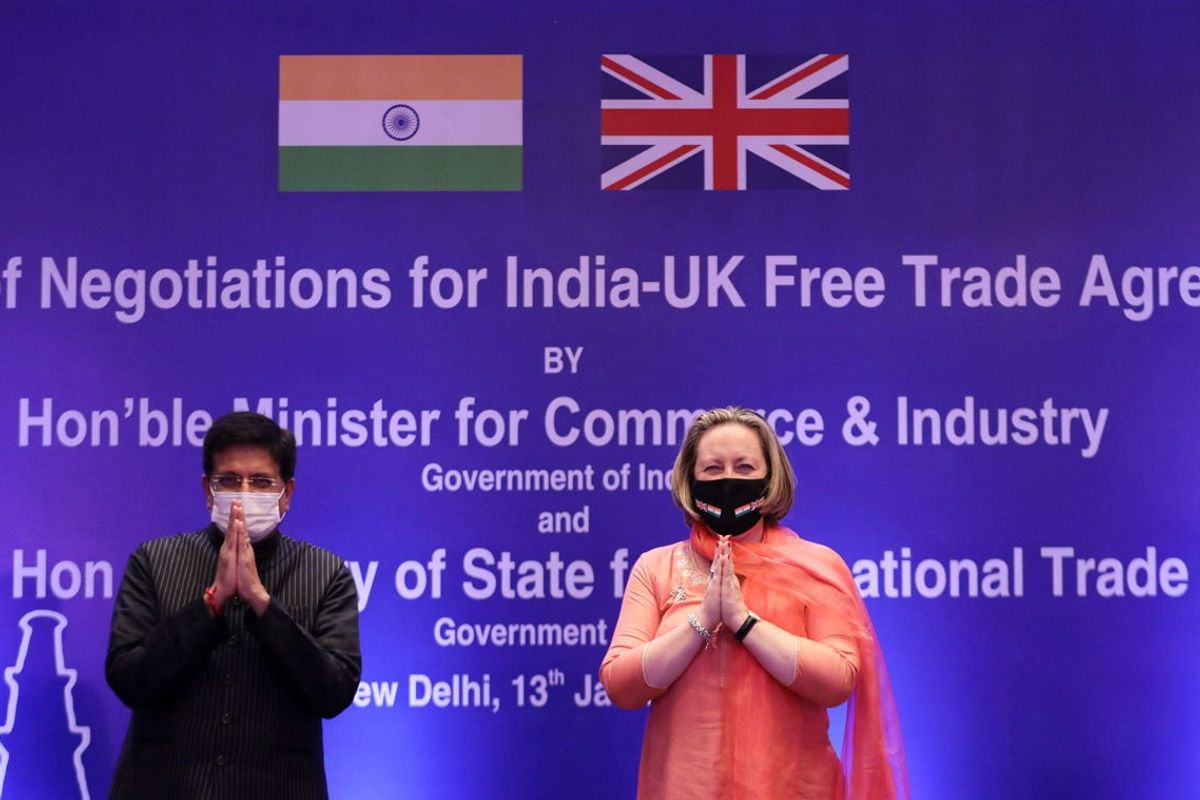Britain and India began hammering out a post-Brexit trade deal on Thursday, with London seeking a cut in tariffs on Scotch whisky and greater access to the Asian giant's services and tech sectors.
New Delhi, which is notoriously reticent about lowering trade barriers and was dubbed the ‘tariff king’ by former US president Donald Trump, wants in return to make it easier and cheaper for Indians to obtain British visas.
A joint statement after Indian Commerce Minister Piyush Goyal and British Trade Secretary Anne-Marie Trevelyan formally launched the talks in Delhi reiterated a target of doubling bilateral trade volumes by 2030.
“Both sides have agreed that we will focus initially on areas which are of mutual benefit and where there is less disagreement, and for which we have set a very aggressive timeline of next few months,” Goyal told reporters.
“We feel confident that there is so much complementarity between the two economies that we should easily be able to come up with a very substantive agreement in the initial phase... I think we are committed to concluding this negotiation in about a year's time,” he said.
“The UK has world-class businesses and expertise we can rightly be proud of, from Scotch whisky distillers to financial services and cutting-edge renewable technology,” Prime Minister Boris Johnson said in a statement.
“We are seizing the opportunities offered in growing economies of the Indo-Pacific to cement our place on the global stage and deliver jobs and growth at home,” he said.
Britain has struck trade deals with Japan, New Zealand and Australia as it attempts to compensate for falling trade volumes with the European Union since it left the bloc in January 2020.
The total volume of trade at stake in a deal between Britain and India is small fry, however, equivalent to about three percent of London's total volume of commerce with the EU, Bloomberg News reported.
New Delhi's push to ease the granting of UK visas for Indian nationals may also fall foul with Brexit supporters who were keen to cut immigration.
Conservative lawmaker Edward Leigh told parliament last week that "working-class voters who voted Brexit did not vote to replace immigration from Europe with more immigration from the rest of the world".
Tariffs of up to 150 per cent
Scotch whisky producers are eagerly looking at the discussions, as the UK Government is striving to slash duties of up to 150 per cent on whisky exports, offering a boost to distilleries and the whole spirits industry.
“Launching UK/India trade talks offers a golden opportunity to reach an ambitious tariff reduction in an early harvest deal that could grow Scotch Whisky exports to India by £1 billion over five years,” Mark Kent, chief executive of the Scotch Whisky Association, said.
“Tackling the tariff and State level regulatory issues would open the market up to smaller producers who are effectively locked out by the substantial barriers to trade.”
Minister for Scotland Malcolm Offord added: “Home to 1.4 billion consumers and one of the world’s fastest growing economies, India holds enormous potential for Scottish businesses as part of an ambitious new trade deal.
“On a recent visit to Mumbai, I saw first-hand how Scotland’s distilleries would benefit from the removal of tariffs as high as 150 per cent on whisky. Our thriving services sector would also receive a welcome boost. I look forward to talks with India progressing as we negotiate new global trading relationships for the benefit of people and businesses across the UK.”
The UK government said a deal has the potential to almost double UK exports to India, boost the total trade by as much as £28 billion a year by 2035, and increase wages across the UK by up to £3 billion. Investment from Indian companies already supports 95,000 jobs across the UK.


